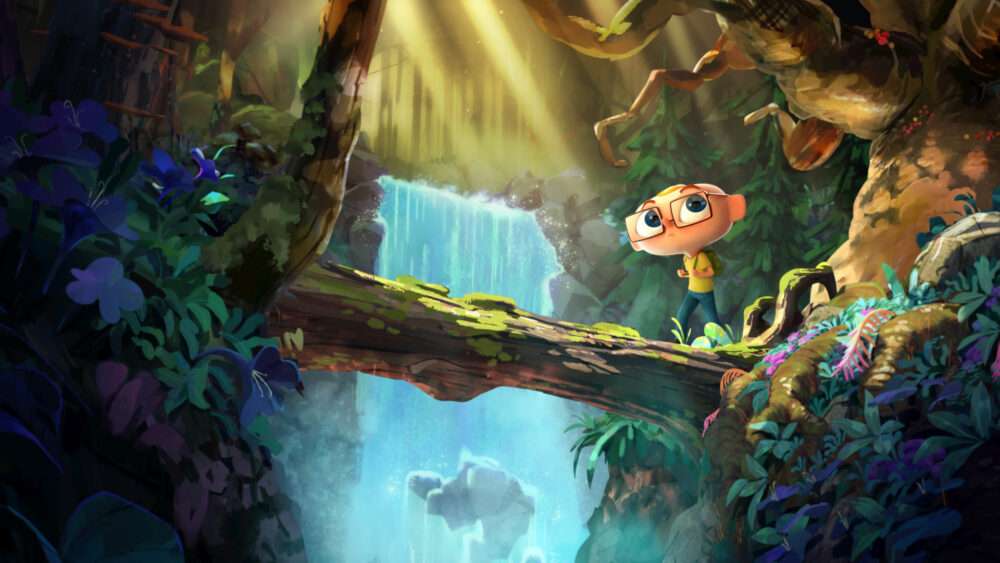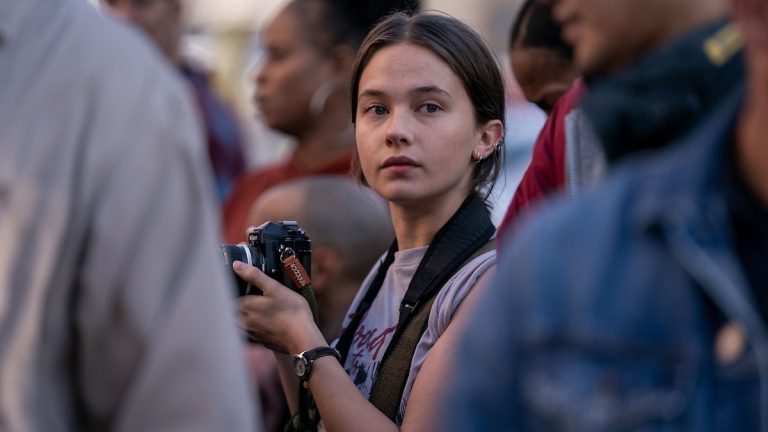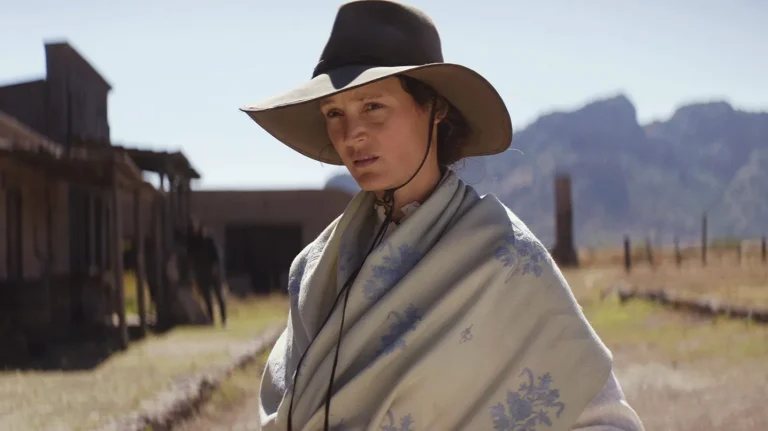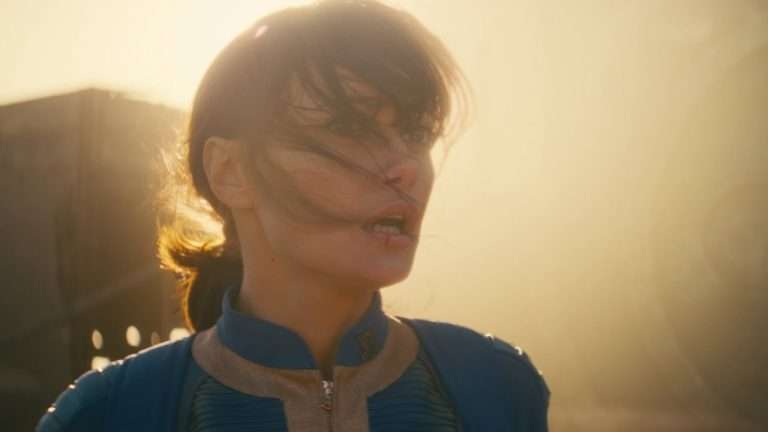Vincent Paronnaud and Alexis Ducord’s “Into The Wonderwoods” is a simple, endearing ode to flights of imagination, especially those kinds that take over every child convinced of himself or herself being the savior and ultimate protagonist in a sprawling, large narrative. At such junctures of one’s formative years, imagination runs wild as one seeks escape from dull, undesirable reality and gleefully fashions wild, intrepid adventures out of thin air.
Everyone else assumes the face of a rival or opponent in one’s pursuit of an idealized, heightened goal. In the feckless pull of a child’s rambunctious imagination, there are no limits. Every imagined space becomes laden with adventure and possibility. Danger and risk sprout in one’s imagined estimate, as does the thrill of conquering it all. The sheer kick and joy of being a victor in one’s own carefully arranged game, replacing the familiar with varying degrees of allies and enemies, is what streaks the colorful, upbeat world of the film’s ten-year-old protagonist, Angelo.
Angelo’s fecund imagination is boundless. He gets so caught up dreaming up and turning his mundane scenarios into epic journeys that he has to be yanked out of it and reminded of the real world. In his head, he projects himself as an impressive warrior-like figure, capable of defeating the mightiest. In reality, he is milder, tentative, and fledgling. He can barely stand up to his bullying brother, who calls him ‘slaphead.’ In his thriving imagination, he invents characters based on everyone in his family, all except his dearest grandmother. When she falls ill, the family embarks on a trip to visit her. On the way, Angelo gets separated from his family. Thus begins his adventures into an underworld that’s being met with the threat of being wholly obliterated.
The forest sucks him in as the narrative strongly delineates an eco-positive refrain, the dire need to rally for and preserve the fragile biosphere in the face of rampant capitalist maneuvers. A wickedly controlling figure in a space suit, Ultra, is on a destructive spree, razing through the forest and driving out everything that comes in the way of his quest. His single-minded mission is to locate the spring of life. Its location is a mystery. That is not an impediment to Ultra. He has an entire contingent of robots at his bidding, dispatching them to take over the forest and claim it as the private property of Ultra.

Angelo has no clue about the troubles lurking in the woods. Since he doesn’t have extensive knowledge about Ultra, he is reckless and surges forth without much deliberation. All he wants is a path that will lead him to his grandmother’s house. While his brother is not particularly sensitive, Angelo is thoughtful and considerate of his environment, his attuning to it reflective of his grandmother who is perfectly at ease in the lap of nature and among animals. Angelo encounters all sorts of creatures in the forest that turn into his allies. A squirrel desperately desiring to be a bird gets support from Angelo, who straps him to a balloon that allows him moments of flight, even if scrambling and directionless.
There’s an army of red ants, a personification of the greens, a mournful cloud, and an ogre trying to curtail his man-devouring inclinations, especially after being berated by his daughter, who’s in Angelo’s age bracket but has more immediate fearlessness, gumption, and drives in mobilizing the resistance to Ultra. These characters start seeing him as an ambassador, proponent, and potential co-leader for the cause of the forest’s survival. While Angelo is initially startled as he’d rather escape from such menacing situations, he finds himself gradually drawn towards the green fight.
“Into the Wonderwoods” sticks to a pretty straightforward design. But the winning touches are in how the directors pepper the film with a generous measure of subversive acknowledgement that underscores a tussle in projecting one’s identity and desire. Pleasant surprises are strewn amidst a fairly familiar narrative arc. The antagonist’s repressed desire and his moments of stolen pleasure are a refreshing addition that renders the film’s inclusivity unexpectedly wider than one would have imagined. This film is a little gush of joy.





![Look Away, Look Away [2021] Review – An objective albeit broad documentation of racial hatred](https://79468c92.delivery.rocketcdn.me/wp-content/uploads/2021/12/Trump-flag-on-rodeo-float-768x405.jpg)
![Revenge [2017]: A Roaring Rampage of Retribution](https://79468c92.delivery.rocketcdn.me/wp-content/uploads/2018/06/revenge-screenshot-2-768x322.jpg)

![Verdict [2019]: ‘TIFF’ Review – Authentic but Lacking](https://79468c92.delivery.rocketcdn.me/wp-content/uploads/2020/01/Verdict1-highonfilms-768x384.jpg)